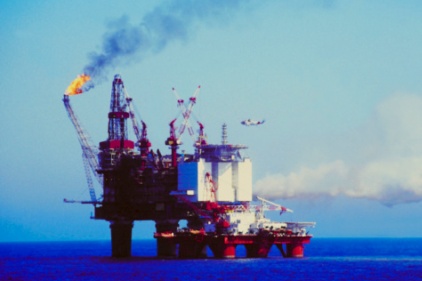Welding hazards can be lethal in offshore drilling

 Despite an intensified focus on safety since the 2010 Deepwater Horizon rig explosion and oil spill, nearly 20 smaller oil companies continue to score poorly on safety inspections and have had their offshore platforms placed on a special watch list, according to data obtained by WWL-TV from the federal government.
Despite an intensified focus on safety since the 2010 Deepwater Horizon rig explosion and oil spill, nearly 20 smaller oil companies continue to score poorly on safety inspections and have had their offshore platforms placed on a special watch list, according to data obtained by WWL-TV from the federal government.
Records suggest new federal regulations and tougher enforcement have caused larger, more established operators to improve their safety culture, but the government’s offshore safety agency is still struggling to make sure smaller independents and their far-flung contractors are stepping up safety.
Three die during welding work
For example, on Nov. 16, 2012, three workers died on Black Elk Energy Offshore Operation’s West Delta 32 E Platform in the Gulf of Mexico, New Orleans District. The explosion and fire, which occurred during welding work that was being conducted as part of construction operations, resulted in the deaths of Ellroy Corporal, Jerome Malagapo, and Avelino Tajonera (three individuals who were working on the platform), serious injuries to others, and the discharge of pollutants into the Gulf of Mexico, according to an investigation by the Bureau of Safety and Environmental Enforcement (BSEE), U.S. Dept. of the Interior.
BSEE regulations include specific requirements aimed at ensuring the safety of welding operations and general requirements regarding safety and environmental management systems.
How it happened
An investigation panel comprised of professionals from BSEE and the United States Coast Guard (the Panel) conducted an extensive investigation of the incident and identified a number of causes of the explosion and fire. The Panel found that the explosion and fire occurred when hydrocarbon vapors ignited while a GIS/DNR worker was welding on the incoming pipe segment to the wet oil tank located in the Lease Automatic Custody Transfer (LACT unit) area.
The ignition started a chain reaction that caused the wet oil tank and two connected dry oil tanks to explode. These explosions caused the three tanks to separate at their bases, launching the wet oil tank and the first dry oil tank into the Gulf of Mexico and blowing the second dry oil tank into the air. The second dry oil tank then struck the platform crane and landed back on the WD 32 E platform. The hydrocarbons in all three of the tanks were released onto the platform and into the Gulf of Mexico. The hydrocarbons on the platform subsequently ignited, starting a fire on the platform.
Basic failures
The Panel found that there was both a failure to comply with welding requirements (30 CFR § 250.113) and adherence to basic safety management tenants:
• Conducting “hot work” without taking proper safety precautions. Black Elk had a documented procedure that was to be followed prior to conducting “hot work” (which includes welding). Those procedures include the inspection of the work area, the use of gas detectors, and other precautions. The Panel found no evidence that any such precautions were taken.
• No worker invoked his “stop work” authority despite apparent anomalies. The Panel found no evidence that any of the workers on the WD 32 E platform on November 16, 2012 exercised stop work authority. According to witness statements, a number of these workers consistently worried about losing their jobs if they raised safety concerns.
Among the Panel’s recommendations, for welding operations, operators should clearly designate a welding supervisor or person in charge as outlined in 30 CFR § 250.111. Also, operators should require all operations and contract personnel involved in hot work to participate together in all safety meetings. The meeting should involve the initiating of the hot work permit and should ensure that the complete job scope is understood, all hazards are identified, and policies, regulations, contingencies, and communications are properly understood and implemented. And operators, contractors (including sub-contractors), and service companies should review methods of initiating a “stop-work” event to ensure that the system adopted will be effective and will encourage stoppage of work to prevent unsafe operations.
Source: the Shreveport Times; US Dept. of Interior, BSEE
Looking for a reprint of this article?
From high-res PDFs to custom plaques, order your copy today!








